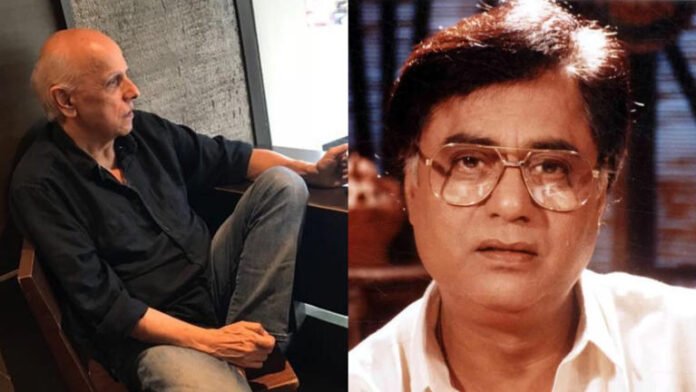In a recent revelation that has left the nation reeling, filmmaker Mahesh Bhatt has shed light on the harrowing ordeal legendary ghazal maestro Jagjit Singh endured following the tragic death of his son. According to Bhatt, Singh had to resort to bribery to secure the release of his son’s body from authorities, underscoring the stark realities faced by ordinary citizens when confronted with bureaucratic red tape and indifference. The shocking revelation serves as a poignant reminder of the systemic flaws and injustices that pervade Indian society, even for individuals of immense stature and renown.
The ghazal maestro Jagjit Singh, known for his soul-stirring melodies and emotive performances, faced an unimaginable tragedy when his only son, Vivek Singh, passed away in a tragic accident. As Singh grappled with the crushing weight of grief and loss, he was confronted with yet another ordeal – the bureaucratic hurdles and callous indifference of authorities in releasing his son’s body for cremation.
In a candid disclosure, filmmaker Mahesh Bhatt revealed that Singh had to resort to bribery to expedite the release of his son’s body from the clutches of red tape and officialdom. The heart-wrenching revelation sheds light on the stark realities faced by ordinary citizens when confronted with the labyrinthine bureaucracy and apathy of government officials.
For Jagjit Singh, a revered figure in the world of music whose songs continue to resonate with audiences across generations, the ordeal was a stark reminder of the harsh realities of life in India. Despite his fame and influence, Singh found himself powerless in the face of bureaucratic indifference, compelled to navigate a maze of corruption and inefficiency to lay his son to rest.
The revelation of Singh’s ordeal underscores the systemic flaws and injustices that plague Indian society, where access to justice and basic rights often hinges on one’s wealth, connections, or ability to grease the palms of officials. Singh’s plight serves as a stark reminder of the entrenched culture of corruption and impunity that pervades all levels of governance, perpetuating inequality and injustice.
Moreover, Singh’s experience highlights the toll that systemic failures and institutional apathy can take on individuals and families already grappling with unspeakable grief and loss. The added burden of navigating bureaucratic obstacles and greasing palms only serves to compound the trauma and suffering of those already reeling from tragedy, further eroding faith in the justice system and the promise of a fair and equitable society.
In the aftermath of Singh’s ordeal, the question arises: how many other families have been forced to endure similar indignities and injustices at the hands of a callous and indifferent bureaucracy? How many lives have been needlessly prolonged or irreparably damaged due to the failure of the state to provide timely and effective assistance?
As a society, we must confront the uncomfortable truths revealed by Singh’s ordeal and work towards dismantling the systemic barriers and inequalities that perpetuate injustice and suffering. We must demand greater transparency and accountability from our institutions and leaders, holding them to the highest standards of integrity and ethics.
Moreover, we must strive to cultivate a culture of empathy and solidarity, where the suffering of one is felt by all, and where every individual is afforded the dignity and respect they deserve, regardless of their status or station in life. Only then can we hope to build a society where tragedies like Jagjit Singh’s are not compounded by the indignities of bureaucracy and corruption, but met with compassion, support, and solidarity.
In addition, Jagjit Singh’s heartbreaking ordeal serves as a stark reminder of the injustices and inequalities that persist in Indian society, even for individuals of immense talent and renown. His experience underscores the urgent need for systemic reform and societal change, where justice, compassion, and dignity are afforded to all, regardless of their circumstances. Let us heed the lessons of Singh’s ordeal and strive to build a more just, equitable, and compassionate society for all.

